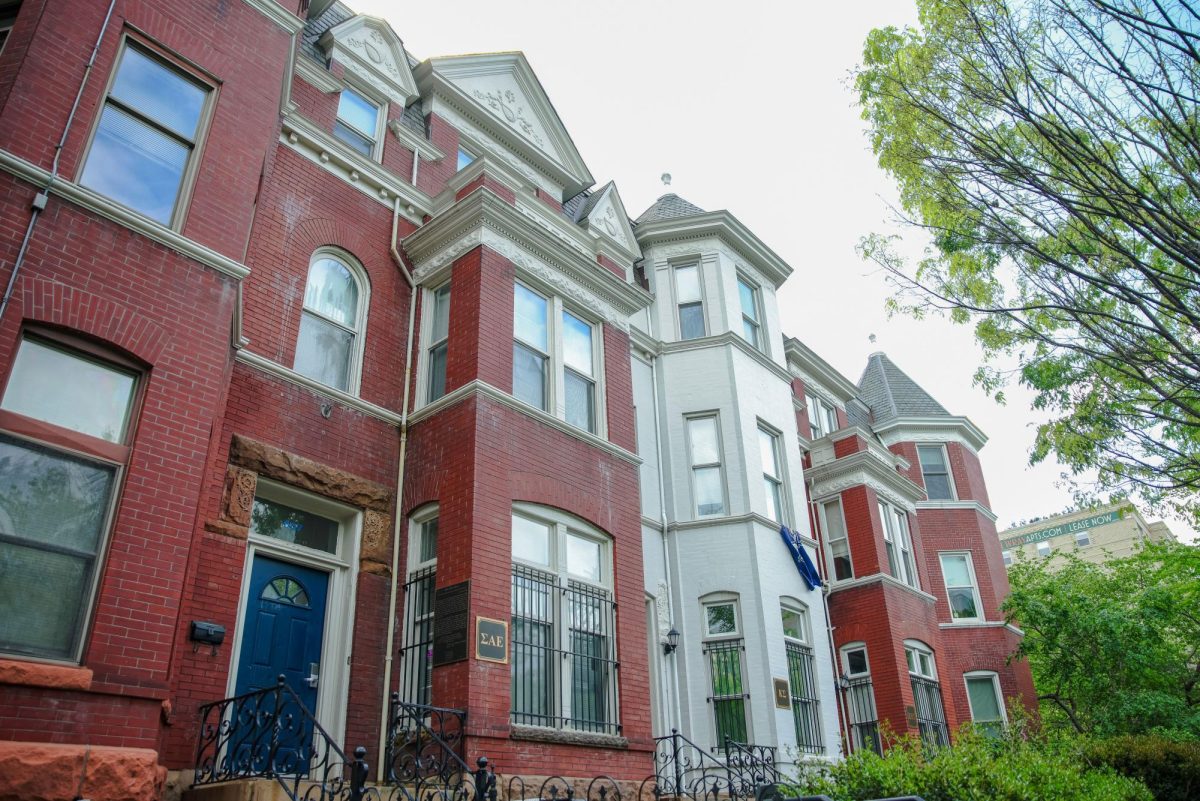Sophomore Gabriel Young was woken up in the middle of the night last month in San Jose, California, from dry thunder and lightning storms, which sparked the second-largest wildfire in California’s recorded history.
Young, who is currently taking classes remotely, said he slept next to a packed backpack and luggage for a week in mid-August after receiving an evacuation warning and watching his neighbors up the road evacuate. When classes began, he said he struggled to stay motivated and focused as the fires ripped through five California counties and thousands of acres of land.
“Although I am doing internships within my area, it just made it even harder to focus and be productive,” Young said. “When your conditions around you are just uncertain, not only from the [Black Lives Matter] movements but with COVID too, adding another stress factor onto me just made it very hard to concentrate and take it all in.”
Images of glowing orange skies and smoky, ash-filled air saturated the news in late August after wildfires spread along the West Coast. The fires have continued to worsen air quality in the region – cities like Portland, Oregon, and Seattle topped worldwide lists for having the worst air quality in mid-September, and smoke from the fires has spread all the way to D.C.
More than 10 students taking classes in California, Oregon and Washington said they began their semester facing “extreme” heat waves and knowledge of at least one wildfire near them. Students said power outages and poor air quality have distracted them from schoolwork, bringing on another layer of stress for their families affected by the fires.
“Whether it’s the fact that I might lose power for multiple days at a time and not be able to keep up with my online classes, or that my 90-year-old grandmother may need assistance evacuating but we can’t come in direct contact with her because of the virus, a lot of unfortunate and largely unnecessary situations are occurring, which is very stressful.”
Sophomore Prerna Agarwal, an international affairs major also from San Jose, California, said she remembers crying from the toxicity in the air quality around her when she went outside during the peak of the fires in August. She said it was “impossible” to leave her house for days because of poor air quality and intense heat waves.
Air quality poses little or no health risk when the air quality index is between 51 and 100. At 101 to 150 – which Agarwal’s region reached – the air is considered unhealthy for sensitive groups like the elderly, children and people with lung disease.
“I ended up staying indoors during most of the fires, and I am very grateful that I had a space to be able to do so,” Agarwal said in an email. “They did have to intermittently turn off WiFi, which made it challenging to engage in online school or finish work.”
Agarwal said it was “heartbreaking” to see places she had hiked burnt. She said she struggled to focus in her classes due to power outages brought on by the heat, evacuation concerns and anxiety from the fires’ destruction.
“The media exacerbated that fear with visuals of neighborhood forests or orange skies, and there was fairly vague or convoluted information coming from our city, which added to the stress of not knowing exactly what would happen,” Agarwal said. “It was so difficult to justify doing my history readings when the sky right outside my window was hued orange, and I had no idea whether we would have to evacuate next.”
Adriana Tapia, a senior studying political science and French from Sammamish, Washington, said she moved to D.C. before the fires and has had to rely on her dad back home and the news for information about the wreckage occurring in her region. She said seeing photos of Seattle covered in gray ash was “distressing,” especially because she couldn’t relate her concerns to her roommates who aren’t from West Coast states.
“It was really sad,” Tapia said. “I almost felt a little guilty for leaving. I’m probably one of the only ones I know for my circle of friends that actually went back to their college town. It was just like the hard aspects of being away from home and the consequences of my roommates not really fully grasping and understanding the severity of it.”
Freshman Lauren Nixon, a journalism and mass communication major, said she experienced poor air quality for four to six weeks when the fires were closest to Orinda, California, where she is currently staying. She said the air was hazy and smelled like smoke from the Dolan Fire and SCU Lightning Complex, making it difficult to be outside without getting a headache.
Nixon said the wildfires exacerbated her anxiety, affecting her ability to stay focused on school work. She said she didn’t need any extensions for her classes but is worried if she isn’t able to connect to the Internet while experiencing longer power outages in October or November.
“While there have been scares about needing to evacuate my community for the past three years, this year poses extra problems because of the pandemic,” Nixon said. “Whether it’s the fact that I might lose power for multiple days at a time and not be able to keep up with my online classes, or that my 90-year-old grandmother may need assistance evacuating but we can’t come in direct contact with her because of the virus, a lot of unfortunate and largely unnecessary situations are occurring, which is very stressful.”








